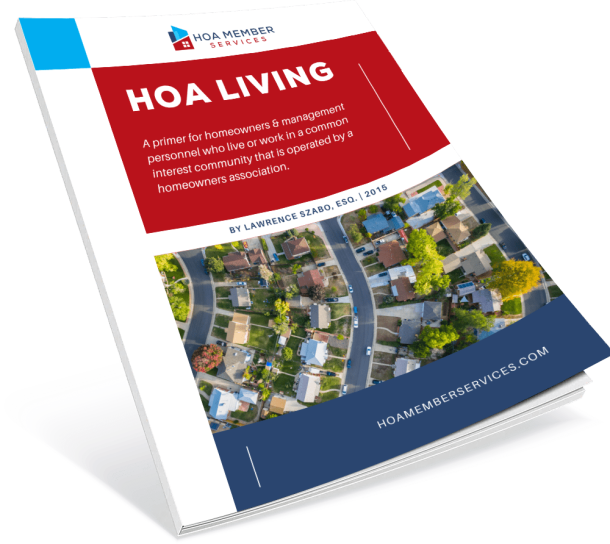Scratching your head over your HOA statement? I know; it leaves you feeling like a big chunk of your paycheck is just disappearing into a black hole.
As a homeowner paying into a Homeowners Association, you must be familiar with that hefty bill that takes a bite out of your wallet. And while we eagerly pay the HOA fees to keep our neighborhood ship shape, man, sometimes it feels like we’re losing sleep over it.
That’s exactly why you’re probably asking yourself: “Are HOA fees tax deductible?” Well, the short answer is: Sometimes they are!
Yep, there’s a chance some of your HOA fees could actually be tax-deductible. Figuring out when and how to claim them could mean a little cash back in your pocket when dealing with the IRS come tax season.
Wouldn’t that be something, right? So, in this blog post, let’s strip away the complexities of HOA fees and taxes to give your wallet a little breather next April 15th.
What Are HOA Fees?
Homeowners Association (HOA) fees are regular payments made by homeowners living in communities managed by an HOA. They’re your ticket to a well-maintained and functional neighborhood.
Your HOA fee is your community’s subscription for a pleasant living environment for all residents. So, what services do HOA fees cover? Here’s a quick look:
- Maintenance: Upkeep of common areas such as landscaping, road repairs, snow removal, and pool cleaning.
- Amenities: Access to shared facilities like gyms, tennis courts, swimming pools, and clubhouses.
- Security: Gated entries and neighborhood patrols to ensure your safety and peace of mind.
Types of HOA Fees
Now, there are two forms of HOA fees to be aware of:
- Regular Fees: These are the consistent, predictable payments that cover routine expenses.
- Special Assessments: These are one-time, surprise charges for unexpected repairs and improvements or significant projects.
Basic Tax Deduction Rules for HOA Fees
Understanding the tax principles surrounding HOA fees and knowing which expenses you can claim is key to maximizing your savings. But first, let’s talk about tax deductions in general.
Simply put, a tax deduction reduces your taxable income. This means lower tax liability on your tax return and more funds for that vacation you’ve been dreaming of — a win-win!
Now, here’s what the IRS has to say about it:
IRS Guidelines on Deductions
The IRS has specific rules about what home-related expenses are deductible. For instance, mortgage interest and property taxes often make the cut, but are HOA fees tax deductible? Yes, there are some conditions to deduct them, though.
As a general rule, HOA fees aren’t considered tax deductible for your primary residence. However, if you rent or use the property as a home office, you can deduct HOA fees as a business expense.
Knowing these regulations can save you some serious green. So, let’s dig into more details to optimize your tax strategy.
Are HOA Fees Tax Deductible for Primary Residence?
In most cases, HOA fees for your humble abode aren’t the golden ticket to tax deductions. You can’t wave a receipt before the IRS and expect a deduction for your lawn manicure or that pristine community pool you never have time to use.
Why? Because Uncle Sam sees them as personal expenses rather than business investments that will shave a few bucks off your tax bill.
But hold on, although the answer to “Are HOA fees tax deductible for a primary residence?” is disappointing, don’t lose heart just yet!
There are Exceptions to the Rule:
You heard right! There’s a silver lining if you’ve got a legitimate home office setup. If part of your house serves as a workspace for business purposes, you can deduct a slice of those HOA fees.
Are HOA Fees Tax Deductible for Rental Property?
Owning a rental property can come with its fair share of expenses, and the HOA fee is a big part of them. But here’s some good news for landlords: HOA fees for rental properties can be deducted as a rental expense.
Yes, you can deduct 100% of the HOA fees you pay in taxes for a rental. Here’s how:
Since your rental property is a source of income, the IRS considers any HOA fees you pay a business expense. This means you can completely write off these fees from your rental income to lower your taxable income.
Also, the IRS allows you to deduct fees related to the upkeep and operation of your rental property. HOA fees fit this bill perfectly, as they usually cover services like maintenance and community amenities.
Are HOA Fees Tax Deductible for a Second Home?
HOA fees for your primary residence are about as deductible as a unicorn sighting. But what about that second house of yours? Are HOA fees tax deductible on a second home?
The answer is yes; if you play your cards right, the IRS might cut you some slack.
Imagine turning your second abode into a vacation rental for part of the year. Suddenly, your peaceful retreat becomes a source of income. And guess what? Turning your getaway into an income generator can make those HOA fees deductible.
That’s right — if you use your second home as a rental property for at least two weeks a year, you can claim those expenses as deductible.
Are HOA Special Assessments Tax Deductible?
Special assessments can be a bombshell for many homeowners. So, can you get a tax break for it? Like regular fees, HOA assessments are tax-deductible — but only under specific circumstances.
Here’s a rundown on each scenario:
For Personal Residence:
You cannot deduct expenses related to your principal residence, including special assessments. IRS treats these costs as personal expenses.
For Capital Improvements:
Special assessments for maintenance or repairs do not necessarily lower your tax bill. However, they’re considered an improvement to your property, which could boost your home’s value.
Let’s say the HOA decides to build a new roof for the building or they’re upgrading the community’s security system.
While these HOA assessments are not deductible immediately, they can increase the cost basis of your property. This could reduce your capital gains tax when you sell your property.
For Rental Property:
HOA special assessments are tax-deductible on rental property as they can be called off as business expenses. Similar to regular HOA dues, you can deduct these costs as a rental expense on Schedule E (Form 1040) or Schedule C (Form 1040) accordingly.
For Home Office:
If your workspace qualifies as a home office, you can deduct a part of your HOA assessments based on the percentage of your home used for business.
Other Special Cases and Considerations
There are also several other unique scenarios where it would be worth knowing if HOA fees are tax-deductible.
- Working from Home: You can deduct a part of your HOA fees if you have a bona fide home office. But what if you’re a freelancer typing away on your laptop from the comfort of your bed?The IRS has strict rules about what counts as a home office and requires a dedicated space used exclusively for business purposes. So, working from home in a cozy spot doesn’t qualify, even if you’re entirely self-employed.
- Mixed-Use Properties: What if you rent out only a portion of your home? Then, you can only deduct the HOA fees for the rented space.
- Home Insurance: Is home insurance tax-deductible? Yes, if you have a rental property, insurance premiums are deductible. For your primary residence? Not so much.
Tips to Consider When Claiming HOA Fees on Your Taxes
Now that we’ve settled the confusion around “Are HOA fees tax-deductible?” here are some tips to make the claiming process smoother.
- Keep Records Handy: Hold onto all your records and receipts for your HOA fees. These documents are your proof and can save you a headache during an audit.
- Know the Criteria for Rental Deductions: You can only claim HOA fees if your property is actively rented or at least available for rent. No tenants, no deduction — unless you’re making a genuine effort to find renters.
- Check State-Specific Rules: Tax laws vary from state to state. To avoid pitfalls, make sure you’re up to date with your state’s regulations on HOA fee deductions.
Conclusion
So, when it comes to writing off HOA fees and taxes, the bottom line is — it all depends on how you’re using your property. If you’re a landlord or using a part of your property for business, you might be in luck with some deductions.
But remember, tax laws can be tricky and change over time. When in doubt, consult a tax professional to ensure you’re doing everything by the book and make things work in your favor when tax season rolls around.
(You can always swing by our membership plans for personalized advice and support from an expert HOA attorney.)
So, why leave money on the table? Keep yourself in the loop with the latest tax rules to maximize every possible deduction when Uncle Sam comes knocking.







